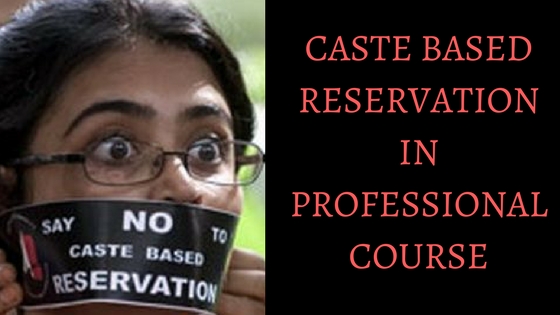Aapka Consultant Judgment Series- In this series, we are providing case analysis of Landmark Judgments of Hon’ble Supreme Court of India.
The State of Madras Vs. Srimathi Champakam Dorairajan
AIR 1951 SC 226, [1951] 2 SCR 525
Hon’ble Judges/Coram : Sudhi Ranjan Das, H.J. Kania, C.J., Saiyid Fazl Ali, M. Patanjali Sastri, M.C. Mahajan, B.K. Mukherjea and Vivian Bose, JJ.
Date of Decision: 09.04.1951
FACTS: –
Srimathi Champakam Dorairajan made an application to the High Court of Judicature at Madras under article 226 of the Constitution for protection of her fundamental rights under article 15(1) and article 29(2) of the Constitution and prayed for the issue of a writ of mandamus or other suitable prerogative writ restraining the State of Madras from enforcing, observing, maintaining or following or requiring the enforcement, observance, maintenance or following by the authorities concerned of the notification or order generally referred to as the Communal G.O. in and by which admissions into the Madras Medical Colleges were sought or purported to be regulated in such manner as to infringe and involve the violation of her fundamental rights.
ISSUE: –
Whether Communal G.O. was in violation of Article 15 (1) and Article 29 (2) of the Indian Constitution which was guaranteed to the Petitioner?
JUDGMENT: –
Article 29 which occurs in Part III of the Constitution under the head “Cultural and Educational Rights”, consists of two clauses, namely, clause (1) protects the language, script or culture of a section of the citizens; clause (2) guarantees the fundamental right of an individual citizen. The right to get admission into any educational institution of the kind mentioned in clause (2) is a right which an individual citizen has as a citizen and not as a member of any community or class of citizens. This right is not to be denied to the citizen on grounds only of religion, race, caste, language or any of them. If a citizen who seeks admission into any such educational institution has not the requisite academic qualifications and is denied admission on that ground, he certainly cannot be heard to complain of an infraction of his fundamental right under this article. But, on the other hand, if he has the academic qualifications but is refused admission only on grounds of religion, race, caste, language or any of them, then there is a clear breach of his fundamental right.
State on the other hand, made an argument based on the implementation of the Directive Principle of the State Policy mentioned under Article 46 of the Indian Constitution which concerns itself with special care of the educational and economic interests of the weaker sections of the people, and, in particular, of the Scheduled Castes and the Scheduled Tribes. The directive principles of the State policy, which by article 37 are expressly made unenforceable by a Court, cannot override the provisions found in Part III which, notwithstanding other provisions, are expressly made enforceable by appropriate Writs, Orders or directions under article 32. It will be noticed that article 16 which guarantees the fundamental right of equality of opportunity in matters of public employment and provides that no citizen shall, on grounds only of religion, race, caste, sex, descent, place of birth, residence or any of them, be ineligible for, or discriminated against in respect of any employment or office under the State also includes a specific clause in the following terms:-
“(4) Nothing in this article shall prevent the State from making any provision for the reservation of appointments of posts in favour of any backward class of citizens which, in the opinion of the State, is not adequately represented in the services under the State.”
Seeing, however, that clause (4) was inserted in article 16, the omission of such an express provision from article 29 cannot but be regarded as significant. It may well be that the intention of the Constitution was not to introduce at all communal considerations in matters of admission into any educational institution maintained by the State or receiving aid out of State funds. The protection of backward classes of citizens may require appointment of members of backward classes in State services and the reason why power has been given to the State to provide for reservation of such appointments for backward classes may under those circumstances be understood. That consideration, however, was not obviously considered necessary in the case of admission into an educational institution and that may well be the reason for the omission from article 29 of a clause similar to clause (4) of article 16.
HELD: –
The Communal G.O. being inconsistent with the provisions of article 29(2) in Part III of the Constitution is void under article 13.
To Get Legal Opinion from Advocates/ Legal Experts, Please click here
To Get Legal Opinion from Retired Hon’ble Judges, Please click here












